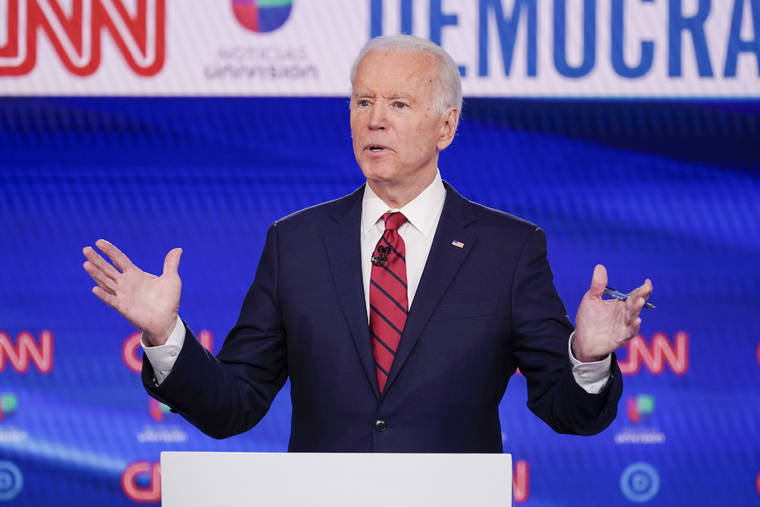Joe Biden has secured endorsements from both of the nation’s major teacher unions after the American Federation of Teachers on Sunday voted to back his presidential campaign.
The AFT’s executive council voted to support Biden after months of town halls and candidate interviews that drew thousands of its 1.7 million members. Recent polling done for the union found that its members prefer Biden by a wide margin, with 60% favoring the former vice president and 30% favoring Vermont Sen. Bernie Sanders.
Randi Weingarten, president of the AFT, said Biden’s views on public education and college affordability line up with the union’s, and she said Biden stands the best chance at defeating President Donald Trump in November.
“Joe Biden is the experienced and empathic leader our country needs right now,” Weingarten said in a statement. “Our country is navigating the greatest challenge we have battled in generations, and it is essential that we rally around a candidate who can show courage, conviction and compassion in the face of uncertainty.”
The AFT chose Biden a week after the nation’s largest teachers union, the National Education Association, threw its weight behind him.
Before the field of candidates thinned, the AFT encouraged its members to choose from among Biden, Sanders and Massachusetts Sen. Elizabeth Warren, saying all three had a track record of working with the union. But recent polling showed that Biden has surged in popularity among members, especially since a series of primary wins on March 17.
Most Democrats in the 2020 race lined up with the teachers unions, with promises to boost funding for public schools, increase pay for teachers and open college to a wider swath of Americans.
Biden’s plans call for universal access to pre-kindergarten, tripling Title I funding for schools that teach large shares of low-income students, and increased support for school infrastructure, among other ideas. He also opposes the use of taxpayer money to support for-profit charter schools.
Until recently, Biden supported a narrower version of free college than Sanders and other candidates, saying community colleges should be free but not public four-year universities. Earlier this month, however, he shifted his stance and proposed free tuition at public colleges and universities for students whose families make up to $125,000.





